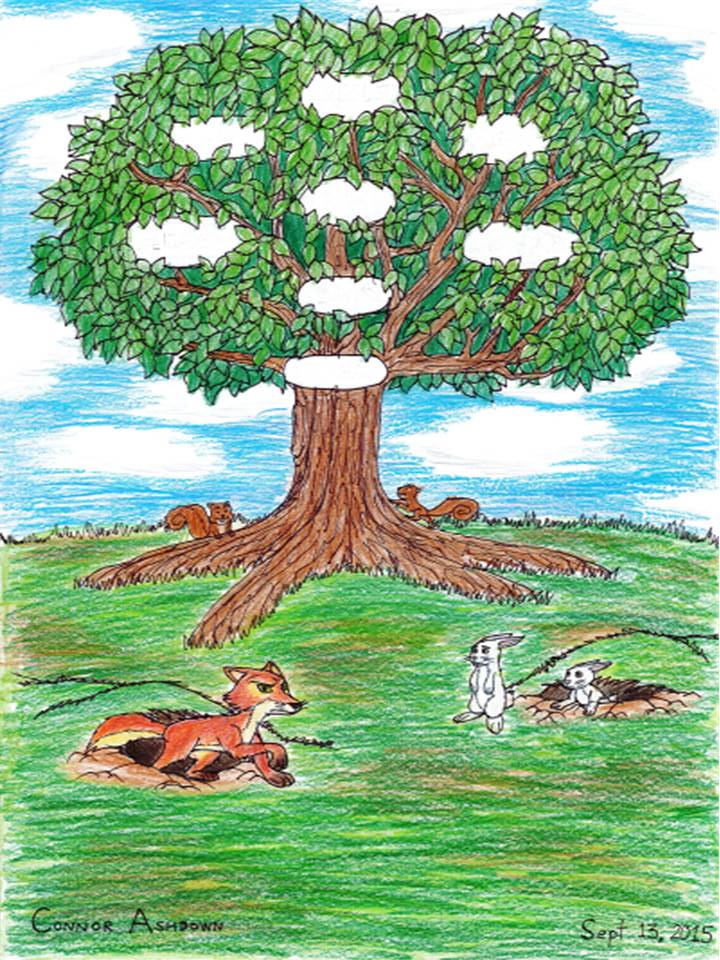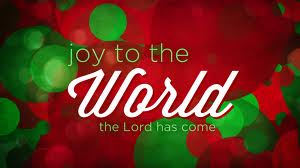Notes on the Notes – December 13, 2015 – Advent 3
This week’s theme:
Advent 3/White Gift Sunday*
This week’s scripture readings:
Zephaniah 3:14-20 – “I will bring you home” – Sing, daughter of Zion; God comes to bring you home
Luke 3:7-18-the preaching of John the Baptist – one is coming who will baptize with fire and the Holy Spirit.
This week’s music:
“In the Bleak Midwinter” (VU #55)
“In the bleak mid-winter, frosty wind made moan,
Earth stood hard as iron, water like a stone;
Snow had fallen, snow on snow, snow on snow,
in the bleak mid-winter, long ago.
Our God, heaven cannot hold him, nor earth sustain;
Heaven and earth shall flee away when he comes to reign;
In the bleak mid-winter a stable place sufficed the Lord God almighty, Jesus Christ.
Enough for him whom cherubim worship night and day,
A breast full of milk, and a manger full of hay.
Enough for him whom angels fall down before,
The ox and ass and camel which adore.
What can I give him, poor as I am?
If I were a shepherd, I would bring a lamb,
If I were a wise man, I would do my part,
Yet what I can I give him – give my heart.”
Christina Rossetti imaginatively placed the holy birth not in warm Bethlehem, but in her chillier and snow-bound native England. It was written before 1872 in response to a request from the magazine Scribner’s Monthly for a Christmas poem. It was published posthumously in Rossetti’s Poetic Works in 1904. The poem became a Christmas carol after it appeared in The English Hymnal in 1906 with a setting by Gustav Holst. Rossetti’s closing verse places the singer at the manger, with the reminder to give the most valuable gift of all – “give my heart.”
Hear the Gloucester Cathedral choir at: http://www.youtube.com/watch?v=xRobryliBLQ
Watch Julie Andrews from her 1987 television special at: https://www.youtube.com/watch?v=H3dcNEec40I
See Susan Boyle with the boys’ choir Libera filmed at Royal Albert Hall: https://www.youtube.com/watch?v=MM-2Qz4hcwI
“Hark! the Herald Angels Sing” (VU #48)
“Hark! the herald angels sing Glory to the newborn King;
Peace on earth and mercy mild, God and sinners reconciled:
Joyful all ye nations rise, Join the triumph of the skies,
With the angelic host proclaim, Christ is born in Bethlehem:
Hark! the herald angels sing Glory to the newborn King…”
The carol we now know as “Hark! the herald angels sing” did not start life as such, and required at least four people to bring it to its current form. Charles Wesley wrote the original words as a Christmas Day hymn and first published it in 1739, with ten four-line verses, rather than the longer eight-line verses with refrain which we have now.
It is interesting to note that in Wesley’s original, the heavens ring with the phrase “Glory to the King of kings,” echoing Luke’s “Glory to God in the highest heaven.” George Whitfield, who had been a student with Wesley, changed this to “Glory to the newborn King” in 1753. In the Gospel account, the angels praise God, whereas in “Hark! the herald angels sing,” they are inaccurately described as praising Jesus. Furthermore, Luke does not say that the angels “sing,” and so it may well be that this reinterpretation by Whitfield has emphasized the popular but not necessarily scriptural picture of angels singing the Gloria.
The tune was composed by Felix Mendelssohn for his Festgesang, Op. 68. It was scored for male voices with brass accompaniment, for the Gutenberg Festival in 1840 to celebrate the 400th anniversary of the invention of the printing press. It was adapted into a hymn tune by William Hayman Cummings in 1856.
Hear Chris Tomlin at: https://www.youtube.com/watch?v=19w0IHPL4X0
Hear Frank Sinatra sing at: https://www.youtube.com/watch?v=0GWFdFqLKZ4
From “A Charlie Brown Christmas:” https://youtu.be/wTu00FCLgPs?list=RDwTu00FCLgPs
“Christmas Time is Coming”
“Christmastime is coming, sing along with me,
Stand beside your neighbour beside the Christmas tree.
Silver tinsel shining like stars from above.
The Christ is present. We feel his love, we feel his love.
Christmastime is coming, sing along with me,
Stand beside your neighbour beside the Christmas tree.
Spread some cheer to others, like rain from above.
Christmas is coming. We share his love, we share his love.”
This song, originally entitled “Feel His Love,” will be sung by the children in Bible Adventures. Clark Bell wrote the words in 1978 using an American folk tune.
“Hark the Glad Sound” (VU #29)
This joyous hymn announces the Saviour’s imminent arrival. The text is a paraphrase of Luke 4:18-19, written by the Reverend Philip Doddridge on December 28, 1738. Doddridge was a pastor of a Dissenting church, which means that he did not accept the authority of the Church of England. He wrote this hymn and many others –– perhaps 400 in all – not for publication but to be sung by his congregation. His congregation didn’t use hymnals, but instead had someone sing the hymn line by line from the pulpit with the congregation repeating each line in turn.
“Hark, the glad sound! The Saviour comes, the Saviour promised long:
Let every heart prepare a throne, and every voice a song.
He comes, the prisoners to release in Satan’s bondage held;
The gates of brass before him burst, the iron fetters yield.
He comes, the broken heart to bind, the bleeding soul to cure,
And with the treasures of his grace to bless the humble poor.
Our glad hosannas, Prince of Peace, your welcome shall proclaim;
And heaven’s eternal arches ring with your beloved name.”
“Tomorrow Christ is Coming” (VU #27)
“Tomorrow Christ is coming, as yesterday he came;
A Child is born this moment, we do not know its name.
The world is full of darkness, again there is no room;
The symbols of existence are stable, cross and tomb.
Tomorrow will be Christmas, the feast of love divine,
But for the nameless millions the star will never shine.
Still is the census taken with people on the move;
New infants born in stables are crying out for love.
There will be no tomorrows for many a baby born;
Good Friday falls on Christmas when life is sown as corn.
But Jesus Christ is risen and comes again in bread
To still our deepest hunger and raise us from the dead.
Our God becomes incarnate in every human birth.
Created in God’s image, we must make peace on earth.
God will fulfil Love’s purpose and this shall be the sign:
We shall find Christ among us as woman, child, or man.”
Fred Kaan wrote this hymn for Advent worship with his congregation at Pilgrim Church in Plymouth, Devon, and submitted it to a hymn competition sponsored by a British television network in 1966. The melody, LITTLE BADDOW, was composed by Cecil Armstrong Gibbs in 1929 for use at Charterhouse School.
In the context of the mass migration of Syrian refugees of all religious backgrounds, the lyrics take on an added depth of meaning in 2015.
“Prepare the Way, O Zion”
“Prepare the Way, O Zion, your Christ is drawing near!
Let every hill and valley a level way appear.
Greet one who comes in glory, foretold in sacred story.
O blest is Christ that came in God’s most holy name!
Christ brings God’s rule, O Zion, he comes from heaven above.
His rule is peace and freedom, and Justice, truth, and love.
Lift high your praise resounding, for grace and joy abounding.
O blest is Christ that came in God’s most holy name!
Fling wide your gates, O Zion! Your Savior’s rule embrace,
And tidings of salvation proclaim in every place.
All lands will bow rejoicing, their adoration voicing.
O blest is Christ that came in God’s most holy name!”
The text of this week’s anthem comes from Franz Mikael Franzen (1771-1847) with adaptations by Charles P. Price (1980). The melody is a Swedish folk tune arranged by Sondra K. Tucker (2000).
“Joy to the World” (VU #59) 
“Joy to the world! the Lord is come; let earth receive her King! Let every heart prepare him room, and heaven and nature sing.
Joy to the earth! the Saviour reigns; let all their songs employ, while field and floods, rocks, hills and plains repeat the sounding joy.
No more let sins and sorrows grow, nor thorns infest the ground: he comes to make his blessings flow far as the curse is found.
He rules the earth with truth and grace, and makes the nations prove the glories of his righteousness and wonders of his love.”
This text is a paraphrase of Psalm 88:4-9. It was written by Isaac Watts and first published in his Psalms of David in 1719. The tune, ANTIOCH, often attributed to George Frideric Handel, is in fact derived from an English tune known as COMFORT published in the early 1830s. Lowell Mason brought the tune to the United States where he arranged it for his Occasional Psalm and Hymn Tunes (1836) and identified it as a melody by Handel.
Enjoy this carol sung by:
Faith Hill at: http://www.youtube.com/watch?v=x-8i_N-thek
Boys’ choir “Libera” at: http://www.youtube.com/watch?v=5IH8A86FLs0
David Archuleta and the Mormon Tabernacle Choir at: http://www.youtube.com/watch?v=U4CSJvzGai4
The Gaithers in South Africa at: http://www.youtube.com/watch?v=2Ri303F7tVE
*What is White Gift Sunday?
The tradition of White Gift Sunday has its roots in a small Methodist church in Ohio in 1904. What began as a humble way to reflect on the love and devotion of the giver and not the value of the gift has grown into today’s white gift services in many churches across several denominations.
The story is told that a minister’s wife initiated the idea to solve the problem of inequity of gifts given at the Sunday school Christmas party. Instead of focusing on receiving gifts, the focus shifted to bringing gifts to Jesus that could in turn be shared with people around the world who did not have much. All the gifts would come wrapped in plain white paper, so that no one would know which was an expensive gift and which was a more modest one. No one would feel ashamed of their gift and everyone would share in the joy of giving to others.
Windsor Park United observes White Gift Sunday as the day that gifts are received to go into our Christmas hampers. Before White Gift Sunday, children who would like to participate are given the name and age of one of the children who will be receiving a hamper. They then purchase a gift which they wrap in Christmas wrapping and label with the child’s name and hamper number. If you did not receive a name and would like to participate, non-perishable food donations will be accepted for our hampers/West Broadway Ministry/our own food bank. Monetary donations may also be made in a white envelope to help offset the cost of the perishable food items included with the hampers. Thank you!
Categories: Notes on the Notes


You must be logged in to post a comment.